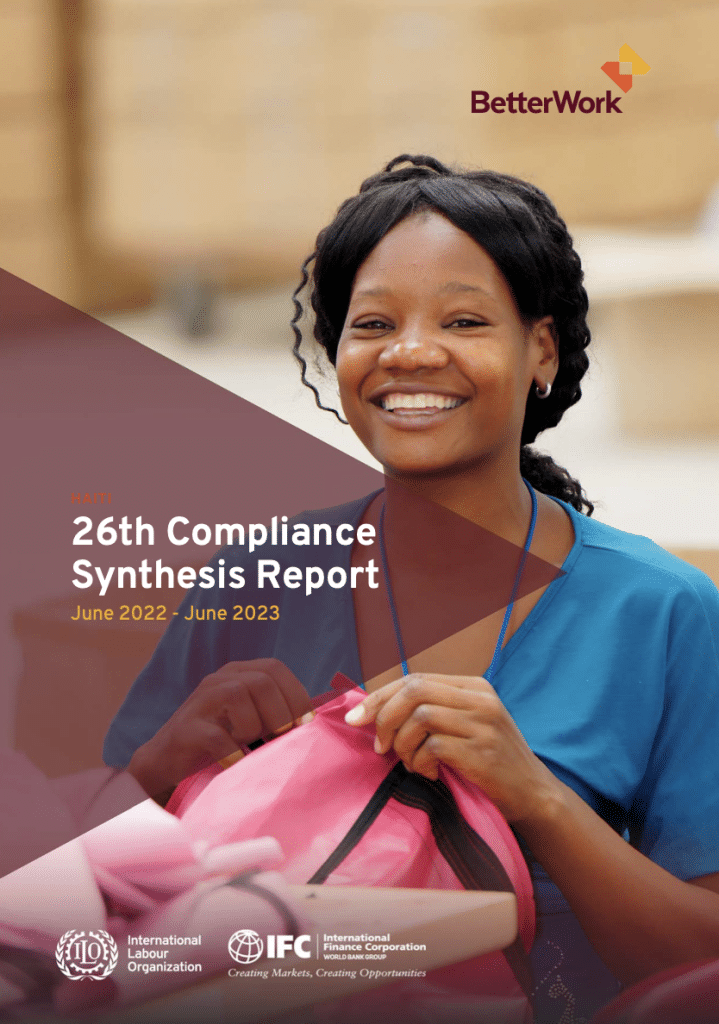Better Work Haiti is working with industry stakeholders to safeguard jobs in the textile and apparel sector and increase productivity through international buyers. The country faces challenges such as an unstable national currency, persistent inflation, high unemployment, political instability, and insecurity. The garment sector has faced significant challenges since the COVID-19 pandemic, with factories closing and workforce reductions. Better Work Haiti manages a portfolio of 33 factories, with 2 that recently closed due to gang-related activities and challenges in receiving raw materials and shipping finished goods.
This report presents an overview of non-compliance findings in 31 participating factories in Haiti, which were assessed at least twice by December 2022. Better Work Haiti assessment found that factories in Haiti face significant challenges in ensuring compliance with both International Labor Standards (ILS) and and national working conditions (NWC). The main non complaince finding in ILS include issues related to Documentation and Protection of Young Workers, Gender, Coercion, Collective Bargainingm and Strikes. Some of those related to NWC include safety and health regulations, such firefighting equipment, accessible emergency exits, and social security benefits. Non-compliance rates for firefighting equipment are high, with 64.5% of factories not keeping proper maintenance documents. However, improvements have been made since the assessment, and the new decree removing the obligation to pay lunch breaks is expected to reduce non-compliance. Additionally, 71% of factories pay annual leave incorrectly, and 77.4% are in non-compliance for maternity leave. Despite these issues, no violations were found related to payment methods, minimum wage payments, overtime payments, or unauthorized deductions from workers’ wages.
The report presents a table with details of the issues at the root cause of the non-compliances findings. This new section will allow to have better understand the entreprises performance comparing to the non compliances rates.
Better Work Haiti continues operations in a hybrid mode, utilizing both virtual and in-person approaches to deliver services under the Hope II law. The collaboration with labor inspectors from MAST continue to enhance to facilitate the delivery of assessments and advisory services, with some virtual assessments conducted due to security concerns in Port-au-Prince. Over time, Better Work Haiti has increased its presence in the northeast region and conducted more in-person activities to address the apparel industry’s challenges, including job losses, implementation challenges, and the development of a business continuity plan.
